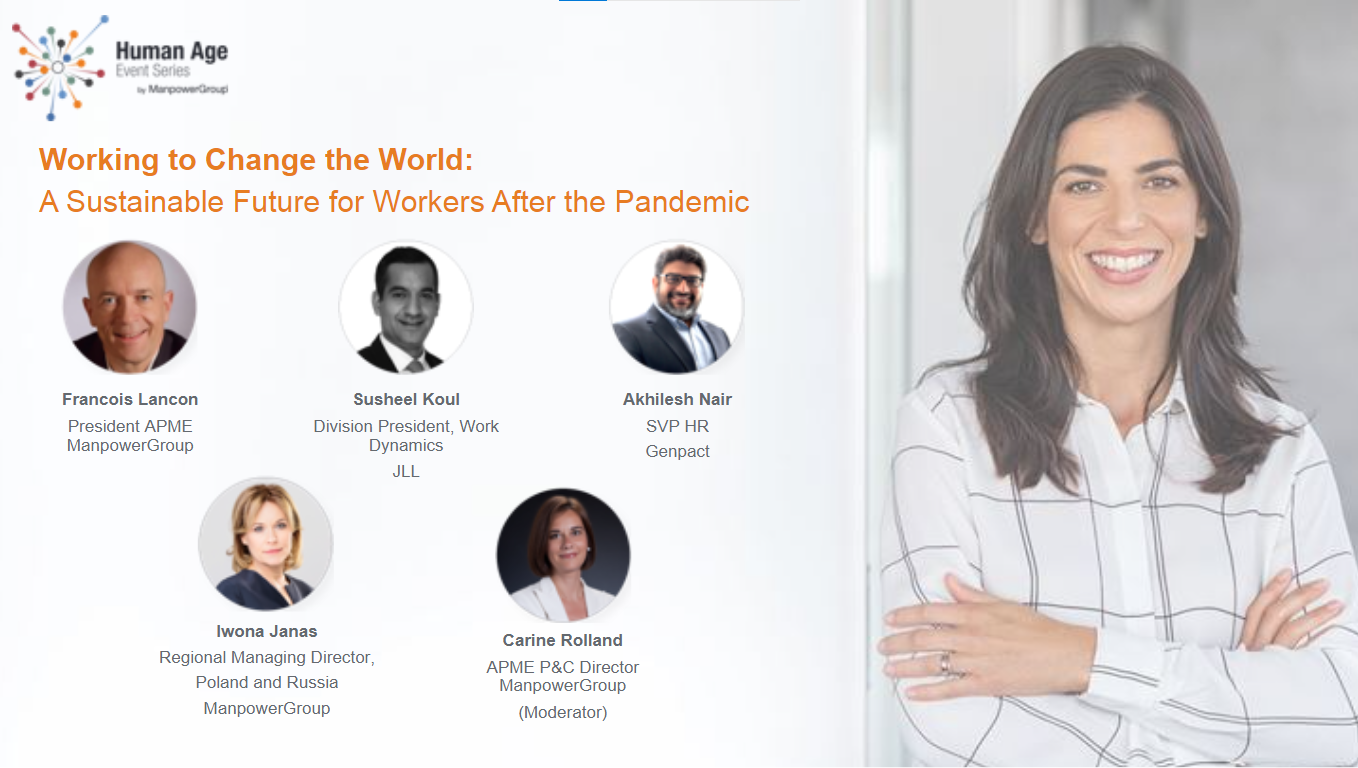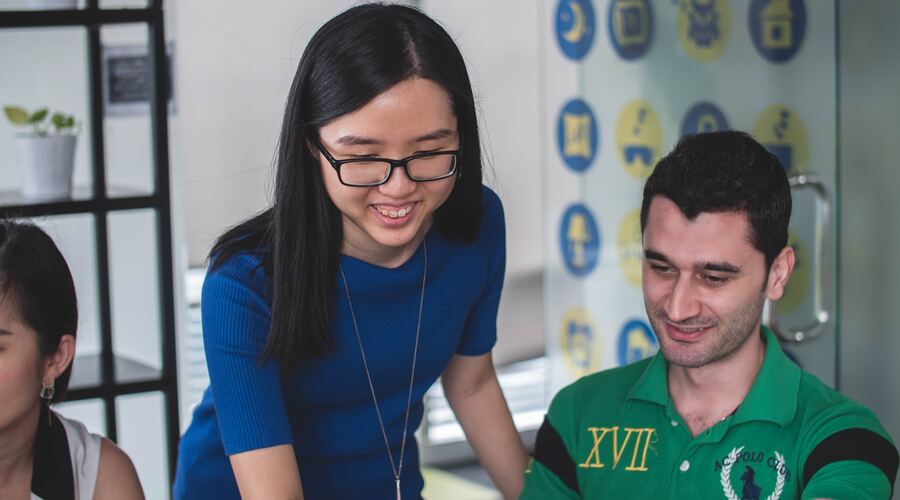Amid the ongoing pandemic, workers have shown they are no longer content with simply being cogs in the machine. The renewed focus on a true work-life balance, health, wellness and well-being, and working with a sense of purpose have joined the ranks of salary and benefits as necessary components for what people are looking for from their employers.
And with a global talent shortage creating recruiting challenges for every industry, employers need to confront these challenges head on if they hope to not only recruit the people they need, but retain those they have.
How employers go about taking those practical steps to ensure a better future for work and for workers was the focus of the recent Human Age event, “Working to Change the World: A Sustainable Future for Workers After the Pandemic."

COVID Changed the Game
When COVID-19 burst onto the scene towards the end of 2019, few people could have predicted the profound impact it has had on all facets of life. For the majority of people accustomed to working in an office, their daily routine was shattered when they found themselves joining the ranks of the sudden remote workforce with little time to prepare or adjust to that new reality. And according to ManpowerGroup’s President, Asia Pacific Middle East (APME) François Lancon, it wasn’t just workers who struggled.
“Managing people from home is very different from managing people in the office. People who were good leaders in normal times, some of them stepped up, some of them did not,” Lancon says. “Fundamentally, we needed a completely different leadership.”
It’s that change in leadership and the need for new leadership styles that could be a silver lining coming out of the pandemic.
“What COVID has done is accelerated the evolution of business practices. Along with glass ceilings that companies had on work that gets done in a certain way is broken. Now work can get done in very different ways, which actually opens up the market for not a role-based employment market, but a skill-based employment market,” says Akhilesh Nair, Senior Vice President Human Resources at Genpact. “That means people can actually share their skills at the time that they want to share and get paid for that. It's not about the traditional outlook of 9-5 jobs.”
Meaningful and Sustainable Employment Has the Power to Change the World
What the pandemic exposed in what workers want, need, and frankly demand, is to balance work and home for the long term (ManpowerGroup research shows the biggest fear, after losing a job, is going back to the way things were) while also working for organizations that give them a strong sense of purpose.
According to ManpowerGroup’s “What Workers Want” survey, workers want to be proud of who they work for and what they do. Strong brands, solid reputation, great place to work and an opportunity to make an impact are in the top ten reasons people cited for their desire to accept a role with an employer.
Workforces are paying more attention to the values and mission of a company and it’s impacting the recruiting game as well. Nearly 86% of millennials would consider taking a pay cut to work at a company whose mission and values align with their own.
“We need to have a purpose. That's what attracts employees. We need to have values, we need an inclusive culture, and we need to set that as leaders of the company. That's becoming more and more important for us to attract people. Meaningful and sustainable employment has the power to change the world,” Lancon says. “Meaningful employment means people have a purpose in their job.
Sustainable employment means people stay employable and upskilled. And I think that's what we need to try to take people and give them meaningful employment or sustainable employment. Whatever their gender, their race, their preferences. After the pandemic, the big change is we have much more responsibilities than we had two years ago.”
As we move forward with the new mindset towards recruiting and giving people what they need, companies will have to adapt their practices or be left behind.
“It's a no brainer. If you don't do that, you're not in the market. You have to be transparent, you have to over communicate about who you are. Today, the market is very hard, every skill is in high demand. You have to be out there thinking about candidate experience, employment experience, and what's in it for them beyond the salary and wages,” says Nair. “A lot of the generation now wants companies with a purpose who actually are giving back to communities and building communities and building future workforce. If you're not representing any of those characteristics that employees want to see in employers, then you are not there in the market in the next 10 years.”
“No Point in Giving People Flexibility and Then Becoming Inflexible on that Flexibility”
With remote work becoming the norm after having been a necessity during the pandemic, workers have discovered they like the flexibility of working remotely or adhering to some version of a hybrid-working model. While more people will be working remotely at least some of the time, companies must avoid the temptation to treat that schedule with the previous “clock in, clock out” mentality.
“Organizations need to accept that employees will need flexibility. The majority of the workforce want the possibility to alternate between different places of work. People
want to come to work, but they also want to remote in,“ Susheel Koul, Division President - Work Dynamics, Asia Pacific at JLL says. “More work needs to be done on not policing this flexibility too much. There’s no point in giving people flexibility and then becoming inflexible on that flexibility. So, trust is a key point here.”
Flexibility Benefits Women and Organizations Alike
By truely flexibility, and remaining flexible, employers will not only build trust within their teams, but they can broaden their talent base by keeping women in the workforce.
“We know that women, in many cases, have this biggest challenge of managing a job with motherhood. Now it's a question of getting more flexibility to remain in the workplace and flexibility in terms of place, hours. The remote and the hybrid model of working is the answer to this challenge,” says Iwona Janas, Regional Managing Director for ManpowerGroup Poland and Russia. “It will really help women not only to come back to a workplace, but also to remain and to retain the job in the future.”
While work, and how, where, and the way it gets done continues to evolve, what is here to stay is a workforce that is more agile, flexible, and consciousness. Employers will have to adapt to accommodate the realigned expectations of their people, or risk losing them to other organizations capable of changing with the times.
Access the “Working to Change the World: A Sustainable Future for Workers After the Pandemic” webinar on-demand for more of the conversation, including discussions on what future skills employers will be looking for, diversity in the workplace, the impact of digitalization, and more.
